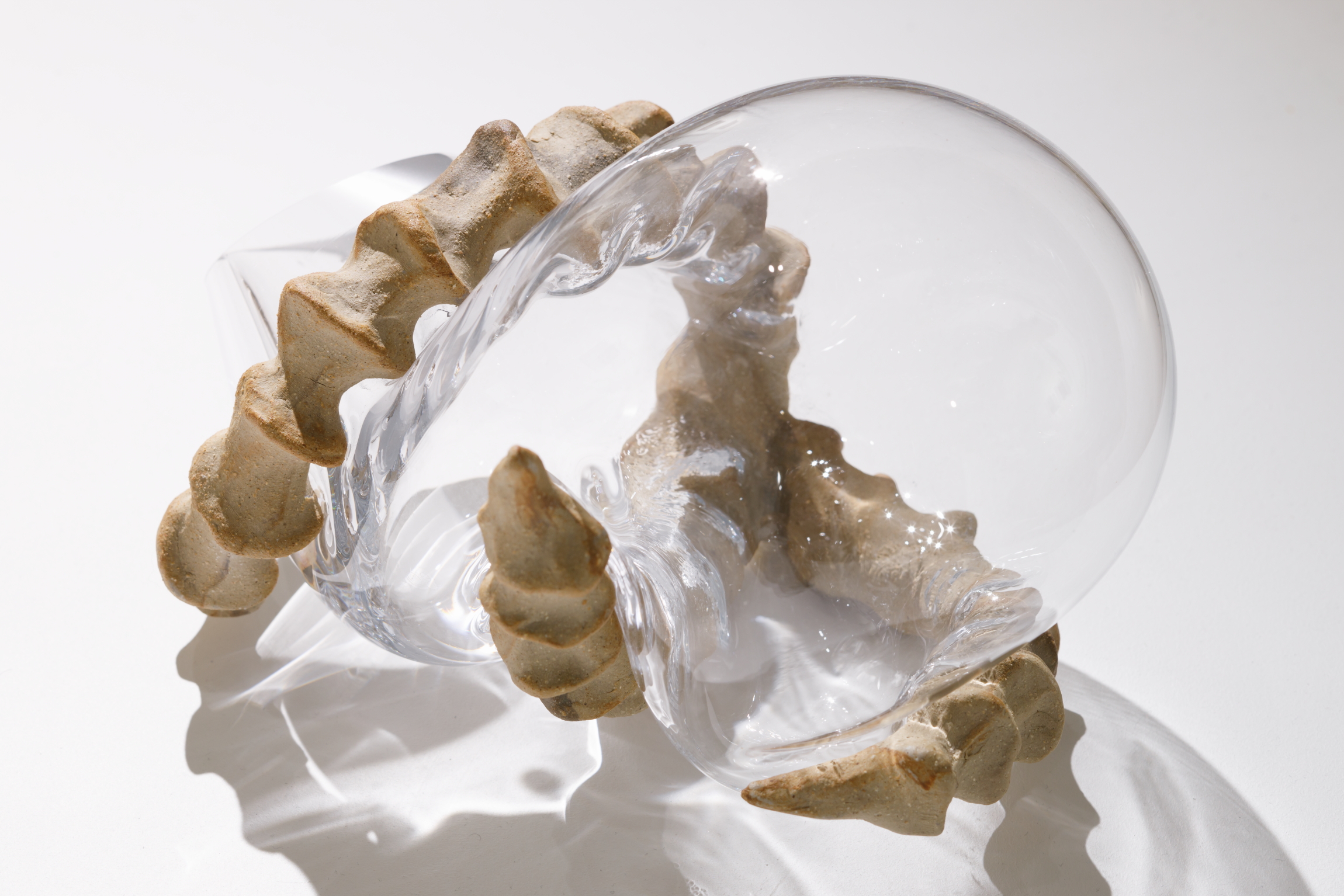Artist: Karlīna Mežecka
Curator: Žanete Liekīte
Title: Archive of Fragility
Venue: Kim? Contemporary Art Centre, Riga
Turning to the poetics of regional space and human emotional experience within it, the artist Karlīna Mežecka reflects on categories of fragility. The images of the space “move in both directions: they are in us as much as we are in them”, initiated Gaston Bachelard. Leaning on this statement, the exhibition Archive of Fragility encompasses interior space and the individual’s inner world as well as external space and outward bodily experience, becoming a tool for analysis of the human soul.

In the exhibition the human body has assumed an allegorical presence amid the investigation of heightened emotional states. The compromised forms of the artworks bring to mind the physical and emotional fragility of the body, and its delicacy is reflected in the “easily breakable” materials. Since the ancient civilisations, ceramics have been symbolically linked with the representation of the body, and in Mežecka’s works they depict the imprints of experiences on a person. These reveal a dual philosophy of life, guided by both aesthetic considerations and the quotidian ones that are essential for survival. On the one hand, beauty is found in these imperfections; on the other, there is the necessity of repairing what is broken. Finding a solution somewhere between the Japanese kintsugi technique and the frugal repair and patching typical of the former Eastern Bloc, the cracks within the works have been filled in with streamlets of molten tin.
The exhibition’s associative scenography mirrors the architecture of memory, diverging from the factual layout of elements within the space in question and maybe even containing logical discrepancies and appropriations from other “spaces”. Within this archive of memory-feelings one can encounter such “blank spots” and burned-out fields. It is a metaphorical house which reveals contrasting sensations – inside ceramic warmth resides in a mutually inclusive way, while anxiety lurks in the robust metallic cut-outs. These conditions correspond to what is suggested by Elaine Scarry’s work The Body in Pain, where the same bodily and cognitive processes that cause pleasure can also be linked with pain, illustrating the complex nature of human emotions. There is a lack of specific knowledge about this ambiguous space, yet this is not a form of ignorance. Just like in poetics, where “not knowing is a difficult transcendence of knowledge”, this archive operates according to the rules of poetry.













“If we opened people up, we’d find landscapes.”
–Agnès Varda
The exhibition’s metaphorical window opens to reveal a landscape tinged with shades of brown and grey-green, softened by a light fog. Light has a fundamental meaning in this landscape, as the ambience of this region’s space relies on the way surface texture is illuminated. The weather is mostly foggy and overcast. This presence of fog also imparts a certain vagueness to the nature of expression in conversation. People speak in riddles, sidestepping straightforward opinions. The surfaces of Karlīna Mežecka’s objects assume the mimicking qualities of this landscape. The glazing of the ceramics and the reflection on the glass transform the landscape as the lighting changes.
By archiving collective patterns, information is conveyed about individuals, the enigmatic form of expression and the history of the region. Through the lens of Michel Foucault’s archaeology of knowledge and aligned with Robert Smithson’s proposition about “future as reversed past”, Archive of Fragility strives to disclose the burned-out spots and write a personal, poetic self-analysis “history of the present”.
Text: Žanete Liekīte
